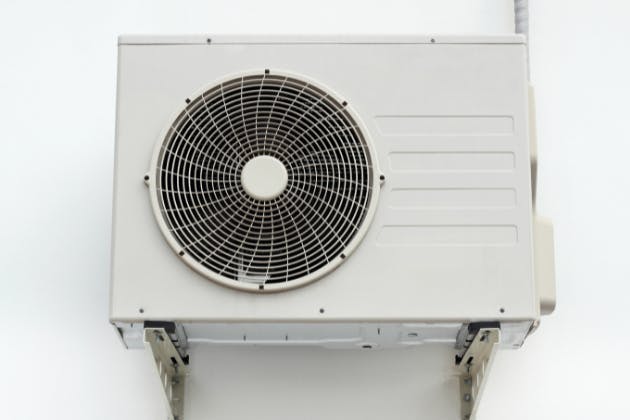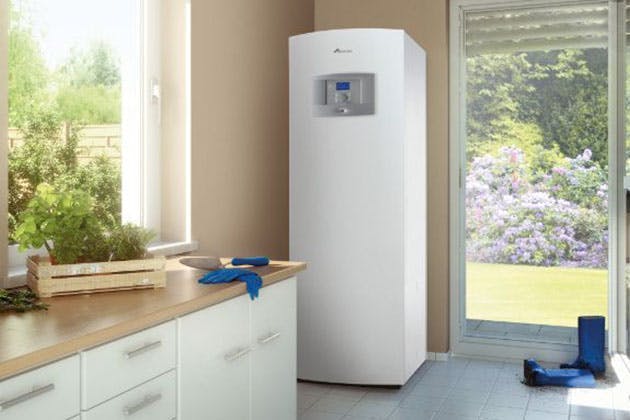With the government providing incentives for low-carbon heat pumps, many people are left wondering what exactly are heat pumps? How do they function? How much do they set you back? Moreover, what does the new heat pump grant imply for you?
Our heating engineers in Milton, York and Harrogate have created an ultimate guide to address all of these topics and more! So go ahead and discover all there is to know about heat pumps right now!

The Ultimate Guide to Heat Pumps
What are heat pumps?
A heat pump is a device that takes heat from the outside and transfers it into your house. It does so by using energy, but the amount of heat provided to your house is much more than the amount of electricity necessary to operate the system. It does not consume any fuel and hence releases no carbon dioxide since it collects heat that is already present in the atmosphere.
How do heat pumps work?
Thermal energy or heat is naturally present in everything around us. Heat naturally moves from a warmer to a colder environment. We need heat to move in the other way, essentially from a colder area to a warmer one, this is to produce heat energy in areas when exterior temperatures are cooler.
But how does this work?
As gas pressure rises, the temperature rises too, and vice versa. The way a heat pump works is based on the relationship between gas pressure and temperature.
The gas is known as a 'refrigerant,' and a heat pump compresses it with electricity, raising the pressure and therefore the temperature. As the heat from the refrigerant is transported to your house through the heat exchanger, it cools somewhat.
The refrigerant is now allowed to expand and cool even more. It's now cool enough to absorb additional heat from outdoors and restart the process.
The heat exchanger's heat may subsequently be utilised to heat your house. This is usually carried out with a central heating system, but it may also be done with warm air from an air-to-air heat pump.

Types of Heat Pumps
Air Source Heat Pumps
Air source heat pumps use fans to collect heat energy from air pushed over a heat exchanger. Because of the vast volume of air that flows over the heat exchanger, even if the air is chilly in the winter, there is more than enough energy available.
Ground Source Heat Pumps
The thermal energy for a ground source heat pump is collected from water moving in pipes and transferred to a heat exchanger within the home. The cold water combined with antifreeze then goes through the heat exchanger, delivering heat to the refrigerant, which continues its trip around the compressor circuit.
Will a heat pump help me save money on my heating expenses?
Even though the compressor and pumps need the power to operate, they use far less than the amount of heat that is transferred from the outside to the inside. The reason for this is because the quantity of heat energy transported vs the supply of electrical energy used is determined by the source and output temperatures, therefore fluctuating each year as outdoor temperature changes.
- Several variables will influence how this affects your energy cost, such as:
- What kind of fuel are you changing, and how much does it cost?
- The price of electricity
- The type of heat pump you install and how efficient it is
- Your heating system's design
- Where you are based
Is it possible to install a heat pump in my home?
Heat pumps are usually the easiest to install in newly built homes but they may also be placed in existing residential properties. A box must be put outdoors to draw in the air. You'll also need to make sure you have enough space inside your property to place a heat pump and a hot water cylinder. The cylinder size will be dependent on the size of the residence, and the unit itself is similar to the size of a boiler.
The ground source heat pump, on the other hand, needs a 100-meter-deep borehole or a horizontal system drilled into the ground over a large area.
Speak to a qualified installer
Here at Green & Reliable Heating, we are fully trained and qualified in installing heat pumps across York, Malton, Harrogate, Wetherby and the surrounding areas. If you would like to know more, please get in touch with us by calling us on 08001182467 or 07717574470.


